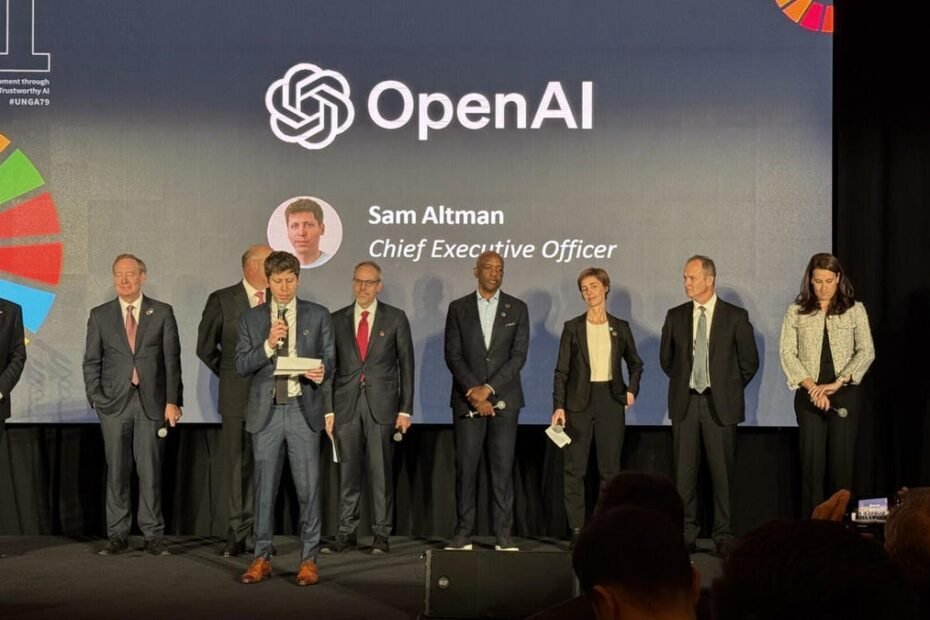At the US State Department’s safe and trustworthy AI event during the UN General Assembly 79 in New York, US Secretary of State Antony Blinken took the stage with Big Tech leaders on Monday to announce over $100 million in investment bringing AI technologies to developing countries.
Blinken discussed how countries most impacted by global challenges also deserve to have easy access to AI to help solve major problems. The State Department — along with OpenAI, Microsoft, IBM, Amazon, Google, Meta, Nvidia and Anthropic — committed to advancing AI technology and availability to countries in the Global South. This initiative means AI training for individuals and businesses, as well as the opening of data centers, plus access to discounted hardware and computer resources to help people achieve their goals.
For Blinken, investing in AI around the world isn’t only a moral imperative, but a security requirement as well.
“This disparity hurts all of us,” Blinken said in a speech at the UN. He added that inclusivity means people around the world can help solve local issues, which can ease stress around the world. “Food insecurity can lead to conflict and mass migration.”
Blinken praised tech partners for their help on this initiative and wants to help countries increase their AI capacity by creating localized context-specific datasets in their own languages.
With the mass adoption of AI tools from Big Tech players like Google, Microsoft, Meta and OpenAI, there’s been concern that the technology has been moving faster than corresponding government regulation. Earlier this year, the UN General Assembly adopted a resolution pushing for safe AI adoption toward global good. The European Union also adopted the Artificial Intelligence Act to establish a regularity and legal framework and put restrictions on AI technologies that are at high risk of causing harm. In response, Big Tech is lobbying to limit the effects of the EU AI Act.
As goverments move to rein in the risks of AI proliferation, it isn’t stopping actors and governments from around the world from pushing the technology or using it in dangerous ways. The use of AI technology was reportedly used to quickly bomb Hamas targets in Gaza, leading to massive destruction and rapidly accumulating civilian deaths, according to reporting from 972 Magazine and The Guardian.
“We have to focus on security and we have to focus on ensuring the models don’t return the most dangerous outcomes that can be misused by bad actors,” said Nathaniel Fick, ambassador at large for the Bureau of Cyberspace and Digital Policy at the State Department, when speaking to the press after the event. “But fundamentally, as policymakers, we need to have our eye on the North Star of innovation and opportunity because AI can fundamentally alter the trajectory toward achieving the UN sustainable development goals.”
Fick added that the goal of this initiative, as well as with the UN’s larger AI goals, is to focus on the architectural level of AI development worldwide and to build broad international consensus on a set of AI principles.
Ultimately, Blinken said no one country has a monopoly on good ideas and that empowering all people is necessary.
“For every problem, someone has the beginnings of an answer,” Blinken said.
